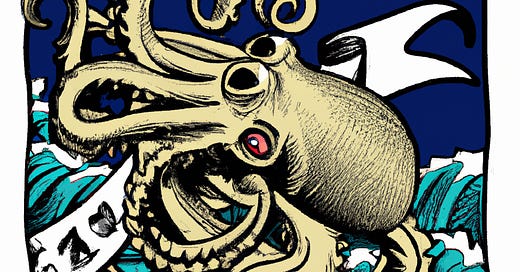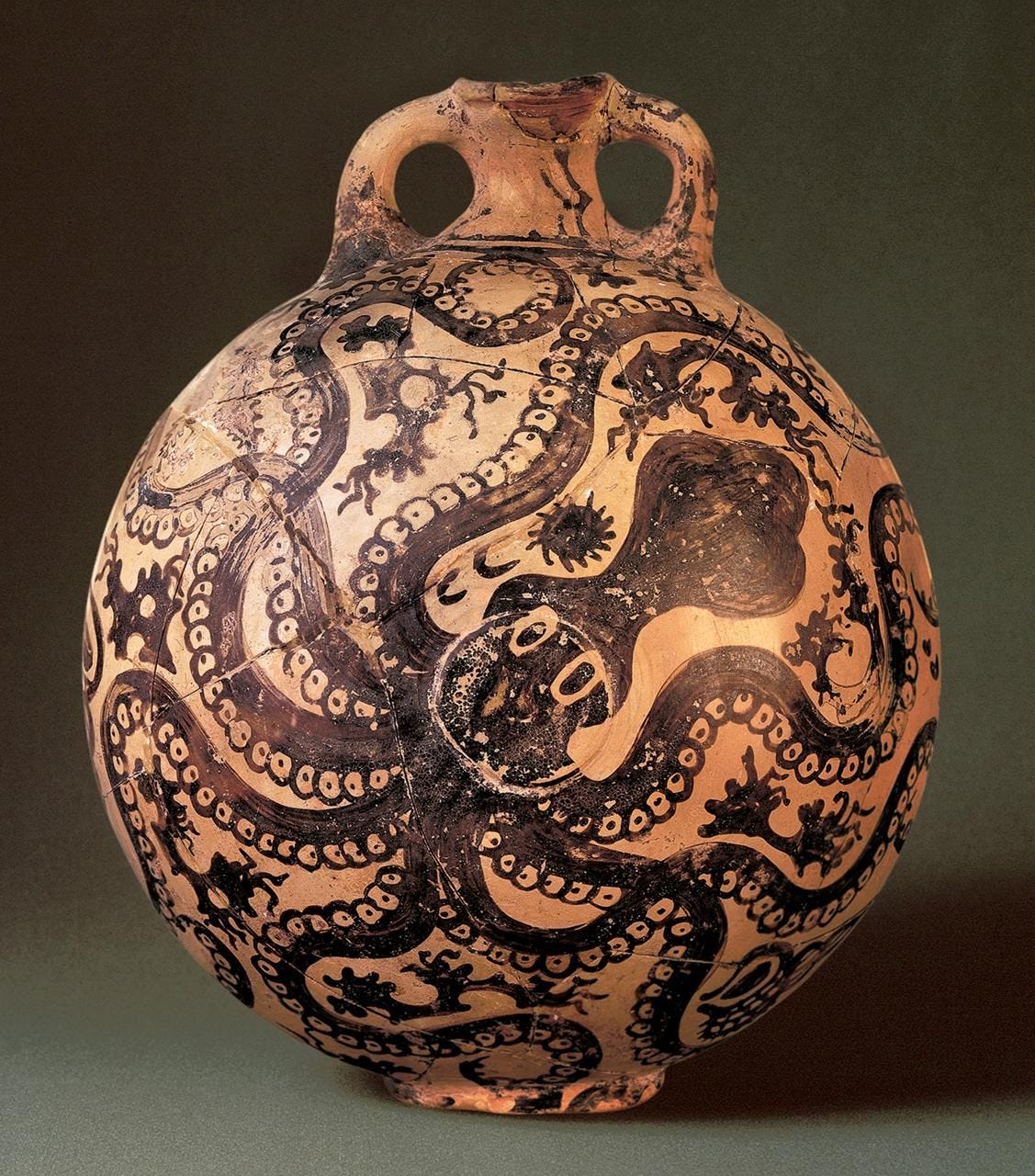(Yes, Octopuses. Much though I regret it, I’m not an Ancient Greek).
They’re just very cool aren’t they, our eight-tentacled cephalopod friends? Big ones, like the Giant Pacific Octopus; itty-bitty ones, like the Star Sucker Pygmy; architects like the Coconut Octopus; and adventurous ones like Inky, the brazen Common New Zealand Octopus who, in 2016, made a bid for freedom from his confinement in an aquarium after his tank was left slightly ajar. The aquarium manager said:
“…Inky really tested the waters here. I don’t think he was unhappy with us, or lonely, as octopus are solitary creatures. But he is such a curious boy. He would want to know what’s happening on the outside. That’s just his personality.”
For some, they can be monstrous creatures: in Fleming’s last set of Bond stories, Octopussy and the Living Daylights (and in complete contrast to the film), Octopussy is the pet octopus of a war veteran 007 has come to apprehend after he is implicated in a murder over some Nazi gold (naturally). The octopus gets his revenge by drowning the man, who had already suffered a sting when searching for scorpion fish to feed the ungrateful cephalopod.
In Ancient Greece, the terrifying gorgon is thought to have been inspired by the octopus, with medusa’s snakes-for-hair representative of the tentacles.
One translation of the Hawaiian creation myth the Kumulipo suggests that the octopus is the lone survivor of a previous age.
I shall not mention here the part the octopus has played in the development of Japanese erotic art… But here instead is a Bashō haiku:
Octopus pots—
brief dreams beneath
the summer moon
Takotsubo ya hakanaki yume o natsu no tsuki
Octopuses are famously bright, and famously flexible, with the largest brain to body ratio of any living creature and three hearts. They’re brilliant. Almost makes me feel guilty - I stress almost - for finding them so delicious.
Octopuses. I love octopuses.






